Remembering Mantequilla
If our current time is one of shifting identities and countless refugees, then José Ángel Nápoles is somehow, despite the passage of time, emblematic of it. His journey foretold that of so many today as his remarkable talent took him from his homeland of Cuba and made him a citizen of the world.
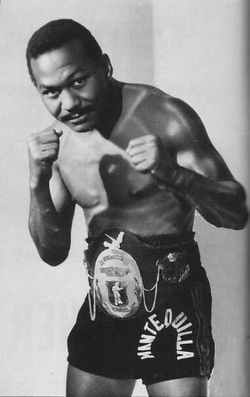
Born in Santiago de Cuba, the second-largest city in the island nation, it was only natural that his remarkable skill for fisticuffs would quickly become evident in a boxing-crazy country which has produced so many top ring talents including Kid Chocolate, Black Bill, Luis Rodríguez, José Legrá, and the great Kid Gavilán. His pro career began in 1958 and so determined was Nápoles to make the most of his talent that he didn’t hesitate to say “Adiós!” to his homeland when Fidel Castro seized power and soon after banned professional boxing. Nápoles eventually made Mexico City his home and it was there that he died a few days ago at the age of 79.
But if the boxer they called “Mantequilla” had to change countries in order to maximize his athletic gifts and pursue his career, his extraordinary talent also forced him to leave his natural weight class in order to secure opportunities. He campaigned through the 1960’s as a lightweight and junior-welter, but his growing reputation as a razor-sharp counter-puncher with deadly power discouraged rivals and necessitated a move up to welterweight.
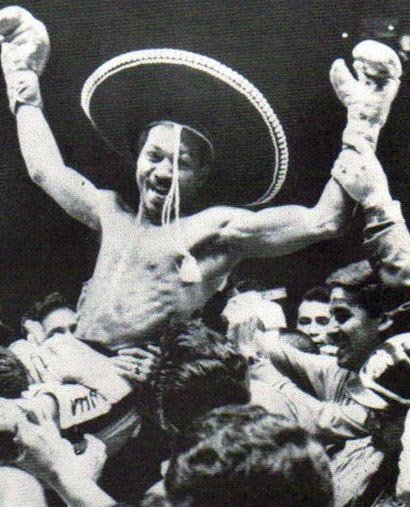
A nineteen bout win streak led to a shockingly one-sided victory over world champion Curtis Cokes in April of 1969. “Cuban refugee Jose Napoles waited five years for his title shot,” reported the Associated Press. “[A]nd when he got it, the fight proved no contest as he hammered Curtis Cokes into submission after 13 rounds … Cokes had two inches in reach but that didn’t help. Napoles kept boring in with his relentless attack.”
A rematch nine weeks later in Mexico saw an even more dominant win; this time Cokes surrendered in round eleven. “He’s a very good fighter,” said the former champion. “Sure as hell a better fighter than Curtis Cokes.”
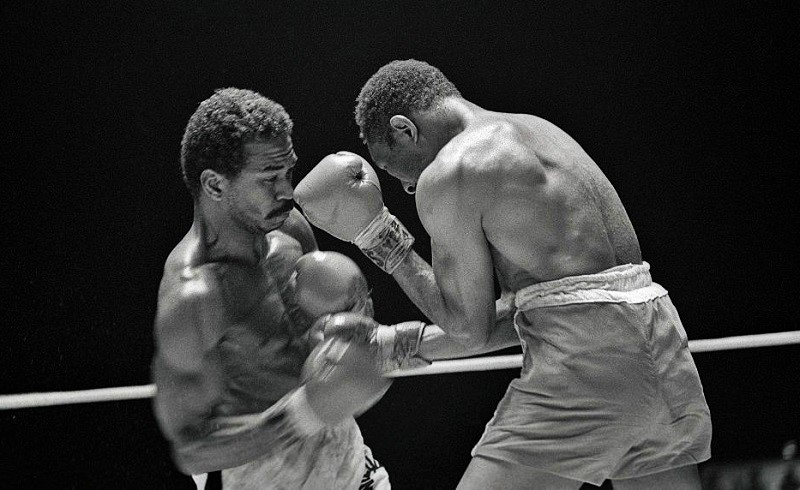
With the exception of an upset defeat to Billy Backus — a loss on cuts which Napoles avenged with relative ease six months later — the Cuban exile was a dominant champion scoring impressive wins over such formidable challengers as Emile Griffith, Ernie Lopez, Hedgemon Lewis, Clyde Gray and Armando Muniz (though it should be noted that his first win over that final name was a most suspect affair; “El Hombre” deserved better than the blatantly biased officiating rendered in Acapulco).
An ill-advised assault on the middleweight championship of the world saw the former lightweight battered and stopped by the much larger Carlos Monzon in February of 1974, but it was a tribute to the skill and reputation of “Mantequilla” that many had anticipated a highly competitive battle on that glittering night in Paris. Following two tough struggles with Muniz, Napoles finally lost his world title in Mexico City by sixth round TKO to John Stracey. He subsequently retired and never fought again.
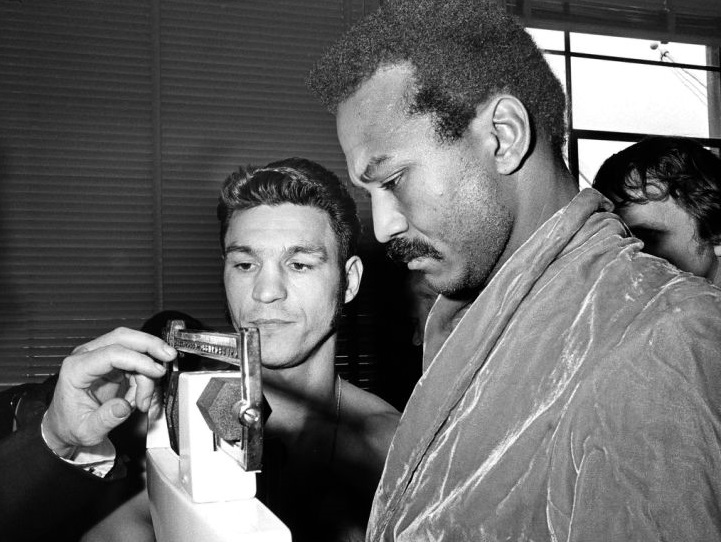
Following his death, the accolades and tributes have come thick and fast for a Hall of Fame champion who is universally regarded as one of the greatest welterweights of all-time. Our own Lee Wylie declared that Napoles “is arguably the finest counter-combination puncher in boxing history. In his prime, he was just about as good as it gets. I’m talking Ray Robinson good.”

A most telling anecdote of the measure of just how “good” Napoles was comes from his 1973 title defense against Ernie Lopez. This was their second meeting and while Lopez had been good enough to last into round fifteen the first time around, in the rematch “Mantequilla” was as smooth and as deadly as he’d ever been. By round seven he was looking for the knockout and he found it after landing a pair of powerful hooks and then an uppercut that put the tough Lopez down and out. He lay on the canvas for several minutes and Lopez’s manager, Howie Steindler, whose time in boxing went back to the 1920’s, declared that he had “never [seen] power like that.”
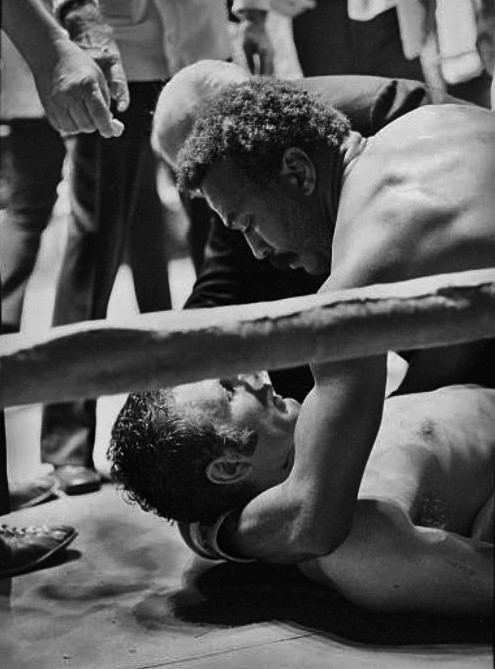
And in the decades to come, there is no doubt that this is how Jose “Mantequilla” Napoles will be remembered: as a naturally gifted boxer, a dominant champion, and one of the greatest welterweights of all-time. Not to mention a citizen of the world.
— Neil Crane

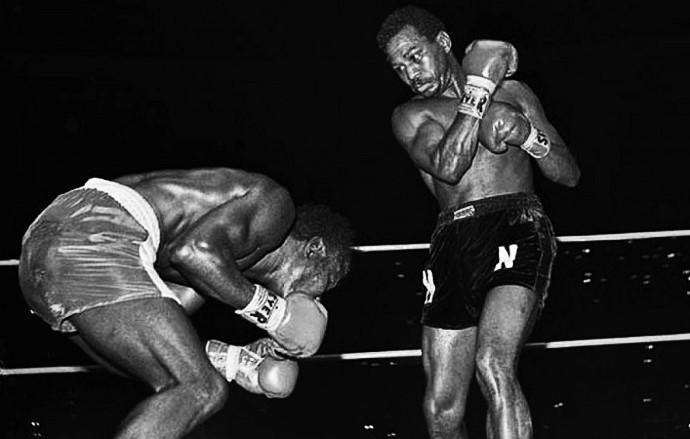

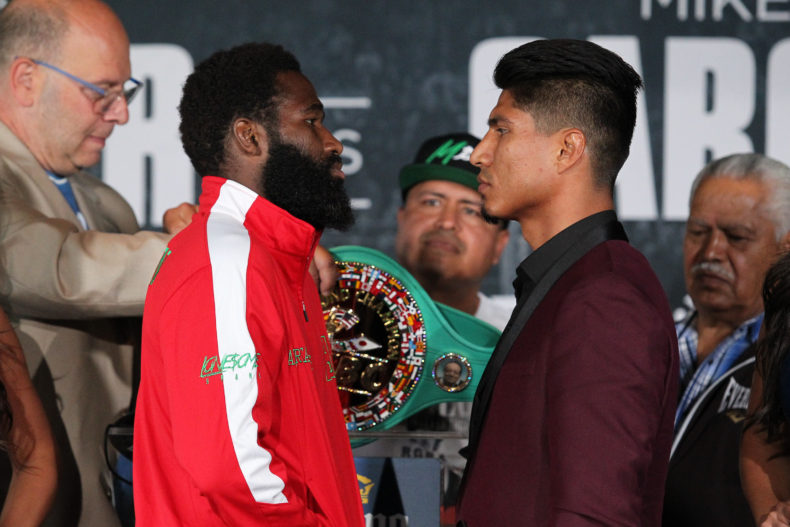

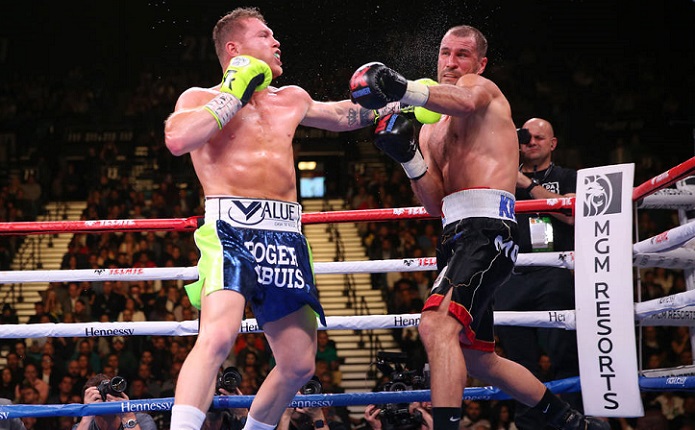
Great tribute, thanks!